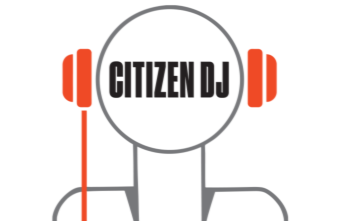Make hip hop music using the Library’s public audio collections.
Citizen DJ the application
Citizen DJ is a project by Brian Foo developed during his time as an Innovator in Residence at the Library of Congress. The application invites the public to make hip hop music using the Library’s public audio and moving image collections. By embedding these materials in hip hop music, listeners can discover items in the Library's vast collections that they likely would never have known existed. For technical documentation and code, please see the repo External.
The album
To hear Tracks from the Stacks, the album Brian produced with Citizen DJ, visit this page.
The guide
Brian worked with Library staff to produce a guide to copyright and ethics of digital sampling with cultural heritage sound recordings. This guide is made for anyone who is interested in making music by sampling existing audio and video material from the Library of Congress and beyond. It is designed to be accessible and clear while not over-simplifying what is a complex set of copyright and ethical issues. This is not meant to be legal advice, but a guide that aggregates, references, organizes, and summarizes existing information from reputable sources such as the Library of Congress and the U.S. Copyright Office.
How will these sounds be made available, searchable, and discoverable?
The website will include three ways of accessing the sounds identified in this project:
- An interface for quickly exploring a particular collection by sound and metadata
- A simple music-creation app that let’s you remix collections with beats
- “Sample packs” that you can download which contain thousands of audio clips from a particular collection that can be used in most music production software
Why Hip Hop?
"Since its beginnings in the 1970s, hip hop has become today’s dominant worldwide music genre and cultural movement. At the center of this movement is the DJ, whose role is to excavate, transform, and collage disparate and obscure sounds from current and past cultures to create wholly new, relevant, and infectious music.
The golden age of hip hop was said to be in the late 80s to early 90s when DJs had unconstrained creative freedom to collage from found sounds. This small window of time produced landmark albums such as Public Enemy’s Fear of a Black Planet and De La Soul’s 3 Feet High & Rising, both considered to be culturally significant and selected for preservation in the National Recording Registry at the Library of Congress. These albums were dense and intricate sonic collages composed of hundreds of found sounds. However, the increasing popularity of hip hop in the following decade gave rise to high profile lawsuits resulting in excessive restrictions on how audio could be sampled. Today, collage-based hip hop as it existed in the golden age is largely a lost (or at best, a prohibitively expensive) artform.
I believe if there was a simple way to discover, access, and use public domain audio and video material for music making, a new generation of hip hop artists and producers can maximize their creativity, invent new sounds, and connect listeners to materials, cultures, and sonic history that might otherwise be hidden from public ears."
About Brian
Brian Foo is a 2020 Innovator-in-Residence at the Library of Congress, and has worked in libraries and museums for nearly a decade, specializing in the visualization of large collections of media for the public. He currently is a data visualization artist at the American Museum of Natural History and previously at the New York Public Library. His multimedia work has been featured on NPR, New York Times, and The Atlantic. You can contact Brian with feedback or questions about the project at LC-Labs@loc.gov .


